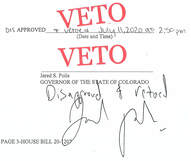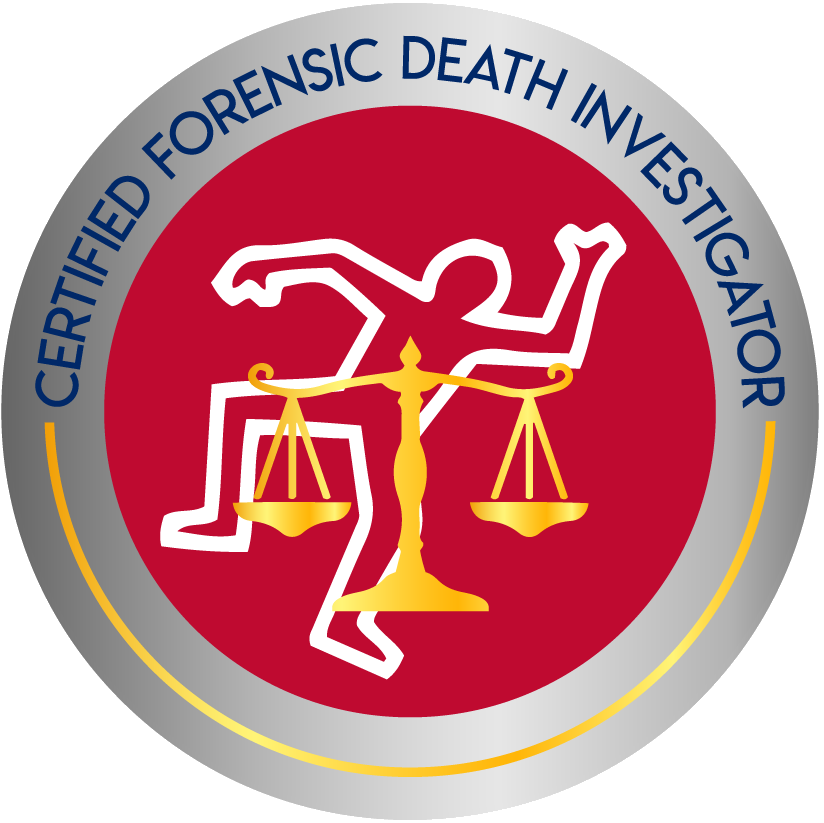
Colorado’s Department of Regulatory Agencies (DORA) is still taking PI license money for a non-existent program – a program they pushed to repeal, directly lobbied the governor to veto – which he did.
Due to the 07/11/2020 veto of Colorado’s governor of the bill to continue the private investigator licensing program, and consumer protections, we are back to an unlicensed environment. The only purpose of licensing in Colorado – of all programs – is consumer protection. Having been in the unlicensed environment since before staring our agency in 1987, we will adapt. Of importance is adapting for our clients. Based on the experience of the licensing programs in Colorado since 2012, we are adapting a commonsense approach to continuing with these standards of practice and protocols in our policies and procedures, as well as ethics. There is nothing new to our approach – are simply continuing on what we have done, or expanded with, for over 30 years. We suggest your agency make similar adaptations, and we also suggest our clients – and yours – look for these in their investigators.
No licensing in Colorado – now what?
The issuance of a license does not provide any assurance to a client of the experience and services of the investigator. The basics have always been simple – 1) Licensed in the state or jurisdiction in which you are operating (if applicable); 2) Have a permitted or otherwise lawful purpose; 3) Your activity must be lawful; and 4) Your activity must be ethical.
All investigators should have a CV or background information for clients. We also recommend obtaining a license in a contiguous jurisdiction – UT, AZ, NM, KS or Cheyenne WY to demonstrate a clear FBI fingerprint background. There are other benefits, most specific to those jurisdictions; however, the first purpose is to show no prohibitive criminal background.
In addition, we recommend having both a surety bond – to protect the client, and liability insurance coverage – to protect yourself. This provides additional assurance to the client. Additional insurances may be necessary – such as if you carry a firearm and/or provided any protective and security services, workers’ compensation coverage, commercial vehicle, and other protections.
We further recommend, for both client and agency protection, your agency should have published ethics, policies and procedures, and have the following minimum standards made available to clients:
- Confidentiality in work-product and communications, and other standards of practice.
- Contract with disclosure of services, fee, and verbal or written report upon completion.
- Avoid any conflicts of interest.
- Detailed and secure recordkeeping.
- Truthfulness in advertising education, training, experience, and services.
What can a PI, not working for an attorney, do an attorney’s agent cannot?
This is an important question, and concern, in an unlicensed environment. When an investigator is retained by an attorney, they become the attorney’s agent and must comply with all rules and doctrines (i.e. work-product confidentiality and confidential communications), as well as state and American Bar Association ethics. Failing to do so may have serious case consequences, and in an unlicensed environment place the responsibility and any consequences on the attorney. However, every investigator has a duty to treat every case with the parameters as working with an attorney.
There are several areas in which investigators not working for an attorney, and instead for a private individual or business, are not legally restrained – and may be very problematic for attorneys representing an opposing party. Our agency is aware of these and has long regularly advised clients on what to look for to challenge the activities of an opposing party’s investigator. These include:
- There is (generally) no legal or ethical restriction in exploiting social media – such as having a social media friend contact to obtain otherwise private posts and information (this is unethical for attorneys and their agents).
- If a drone is used – was the pilot licensed by the FAA and received any necessary authorizations?
- Did the investigator contact a represented party (this is unethical for attorneys and their agents)?
- Did the investigator record any conversations without disclosure (this is unethical for attorneys and their agents)?
- Was the investigator previously licensed in Colorado?
- Did the investigator have any complaints or disciplinary actions while previously licensed in Colorado?
These activities may be potentially damaging if there are any questionable tactics used. However, there is no longer any reporting or disciplinary action to Colorado’s Department of Regulatory Agencies. These may have legal recourses – most often law enforcement will deem them ‘civil’, and taking legal action may not be available in a time-sensitive case the attorney is litigating for their client. There are alternatives, which we are glad to discuss with you. We can also assist with conducting a detailed background of the investigator.
Why is this very bad?
Except in equivocal death consultations for families, our agency strictly works only with attorneys in representation of their clients. We receive numerous inquiries from private individuals requesting our services, sometimes at the suggestion of their attorneys; however, we require an attorney-investigator relationship, agreement, and payments. This is primarily to protect attorney work-product, and also client confidentiality. Overall, it is to protect the attorney and the client.
If the investigator is retained by attorney, and acting as their agent, any disciplinary complaints and actions fall directly to the attorney – no longer is the investigator responsible with no licensing program, oversight, and consumer protection in Colorado. The purpose of this article is to make attorneys, clients, and investigators aware of assuring legal and ethical practices.
The bottom line – case integrity and outcome, and reputation of the attorney and investigator are dependent on the actions of the investigator. This has always been true – consumers are more vulnerable now.
How can our agency help and what do we recommend?
We strongly recommend every investigator be prepared to answer these questions of themselves, every attorney and consumer ask these questions of their consumer, and have these independently verified. Our agency can help with these:
- Is the investigator’s claim of being previously licensed in Colorado true? Were there any complaints?
- Are the investigator’s certifications valid? Are the certifications current and professionally recognized? What do they mean?
- Is the investigator licensed in another jurisdiction? Is the license current? Are there any complaints?
- Is the investigator individually and/or agency bonded and/or insured?
- Is the investigator a member of a recognized association? What are the vetting criteria?
How can having this information help? Every attorney can be more prepared in responses to complaints, interrogatories, motions, etc., and be more prepared for the investigator’s testimony (depositions, hearings, trial). What vulnerabilities are there to the investigator’s report and activities reported? Any activity which is illegal, unethical, or outside of professional standards of practice should be challenged.
Our agency has been involved in licensing efforts and legislative consumer protection for over a decade. We were licensed from the beginning in 2012 (voluntary) and again in 2015 (mandatory), and also in Cheyenne WY, where we remain licensed. We have also been continuously bonded and insured. We have developed agency ethics and standards of practice to assure our clients have the confidence and trust they expect. We have also authored and taught ethics and standards, including assisted DORA as a stakeholder in their ethics and standards development for the licensing programs (including on the PPIAC Legislative Committee as stakeholders), and are members and serve on committees and/or boards of recognized state, national, and international associations.


